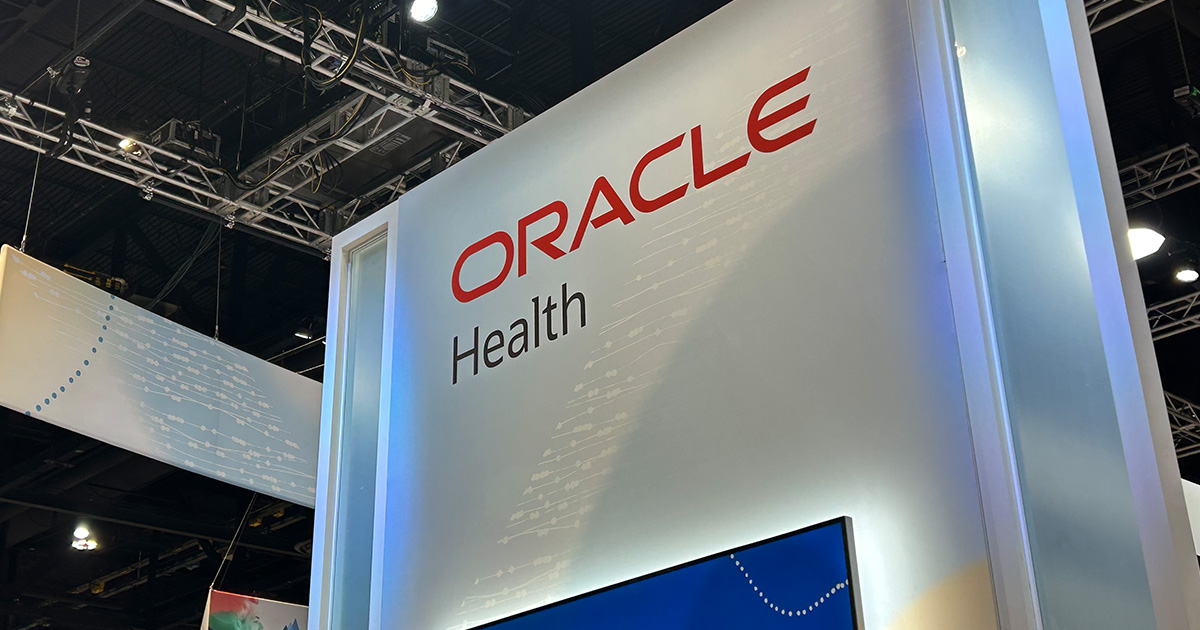'I cannot stress this enough: It is fear that drives this process – fear of audit, fear of penalty.'
When it comes to the topic of meaningful use, Colin Banas, MD, is driven by fear. And he's far from being the only one.
The chief medical information officer at the Virginia Commonwealth University Medical Center's concern is the potential to fail meaningful use requirements because VCU sometimes tailors a vendor's certified product in order to make it more usable.
Whereas such customization is a common practice in the world of enterprise software, in the realm of electronic health records it has become the veritable equivalent of stepping into a rather cloudy area wherein it is very hard to discern whether they’ve gone so far that an auditor might say VCU did not achieve meaningful use.
[See also: Stage 2 off to a slow start.]
What's more, Banas said that it would be impossible to estimate the resources VCU has used to readjust clinical workflows and codes to follow the letter of the law, when it was already clearly following the intent of the measure.
"I cannot stress this enough: It is fear that drives this process – fear of audit, fear of penalty," Banas said, "and fear of vendor abandonment should a client choose to forge a different path."
VCU is by no means alone. NewYork-Presbyterian Hospital is also feeling the pain.
The hospital has spent a lot of time and energy trying to determine if its EHR will be safe in instances where they have changed things slightly from "what's written" into the certified product, according to Virginia Lorenzi, associate manager of information services.
Lorenzi, a health IT veteran with nearly 25 years of experience, said worries about a bad meaningful use audit drive many of her decisions. If an area is gray, she wants to land on the safe side, she said at the hearing, making it clear her opinions are her own and not those of her employer.
[See also: EHR vendors lag in Stage 2 upgrades.]
Certifying bodies
Certifiers themselves said gray areas are difficult, and heretofore ONC has not helped to unify the way the various certification bodies interpret measures.
Amit Trivedi, program manager of healthcare at ICSA Labs, a certification body, said ONC should conduct pilot certification tests involving all the bodies, to observe testing, understand the expected results, learn how test tools operate, and then provide feedback. "To date, this has never been done prior to publication of the certification test procedures," he said.
Kyle Meadors, director of EHR testing with the Drummond Group, an authorized testing and certification body of the ONC said, information-sharing among the certification bodies would maybe force some clarity.
"Some of the issues we've raised have not been pushed out to other certifiers," Meadors said. "We aren't privy to each other's interpretations. ONC needs to start engaging the certification bodies on a regular basis, to see what challenges they’ve faced, what they have allowed — that's where it really gets tricky. You start seeing different interpretations from other vendors."
And Mark Shin, chief operating officer of certifying body InfoGard said the confusion extends to auditing as well where, so far, "there's been a troubling lack of guidance from ONC."
Never soon enough
Banas said the effect of all this has been an erosion of the exuberance he and his team once felt over the meaningful use program.
"VCU has numerous examples of instances where our health system already meets the intent of the measure, but our CEHRT was certified for said function in a different manner," Banas testified. "Not knowing any differently, our EHR vendor tells us that we will need to do it the way in which they certified in order to reliably meet MU requirements."
At least for the time being. ONC has a recent history of being pragmatic enough to listen to feedback, digest what stakeholders have told them, and when appropriate change rules accordingly.
"I don't think it was ever our intent to put you in the position you are in. How can we 'certify' the intent of what we're trying to accomplish?" asked certification workgroup member Charlene Underwood, senior director of government and industry affairs at Siemens Medical. "It gets lost in the standards. How do we enable you to meet the intent of meaningful use through a certified body?"
Jacob Reider, MD, deputy national coordinator — who has been put in charge of "fixing certification" by the current national coordinator, Karen DeSalvo, MD — said ONC is gearing up a new initiative that will soon address the inconsistencies and gray areas in certification and auditing.
That cannot come soon enough for the likes of Banas and Lorenzi.
"The world I live in is the world of fear," NewYork-Presbyterian’s Lorenzi said. "Gray is really hard, if someone's going to audit you. It's a big deal."


